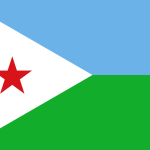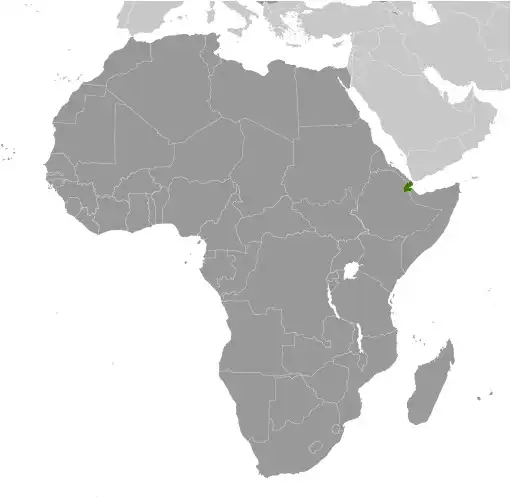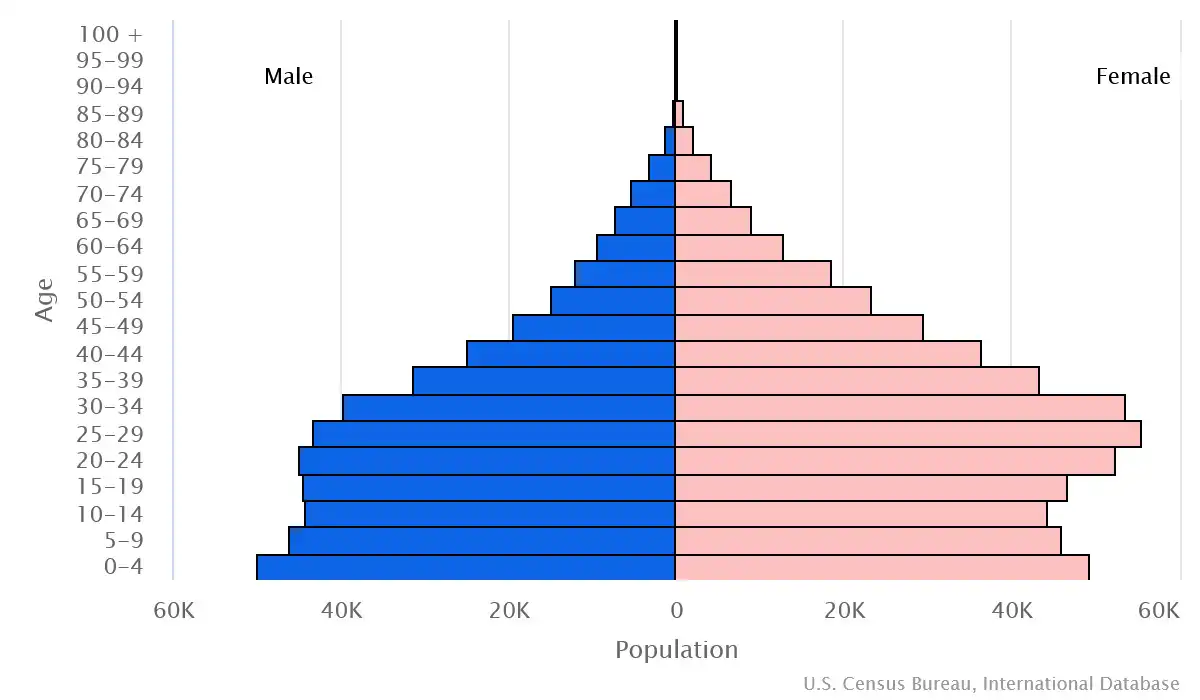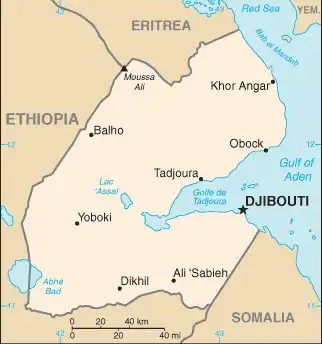
Djibouti
Veröffentlicht: 18. June 2022 - Letztes Update: 28. February 2025
Country Data Dashboard

Population
994,974
Growth: 1.89% (2024 est.)
GDP
$4.099 billion
(2023 est.)
Area
23,200 sq km
| Government type: | presidential republic |
| Capital: | Djibouti |
| Languages: | French (official), Arabic (official), Somali, Afar |
People & Society
Ethnicity (est. ?)
Religion (est. ?)
Age structure

Economy
Economic overview
food import-dependent Horn of Africa economy driven by various national military bases and port-based trade; fairly resilient from COVID-19 disruptions; major re-exporter; increasing Ethiopian and Chinese trade relations; investing in infrastructure
Real GDP (purchasing power parity) in Billion $
Real GDP per capita in $
Exports & Imports in billion $
Top 5 Import Partner in 2022 (80%)
Top 5 Import Commodities in 2022
- refined petroleum ⛽
- palm oil 🛢️
- fertilizers 💩
- cars 🚗
- raw sugar 🍚
Top 5 Export Partner in 2022 (80%)
Top 5 Export Commodities in 2022
- palm oil 🛢️
- chlorides 🧪
- seed oils 🛢️
- flax yarn 🧵
- cattle 🐄
Geography
Map

Area
Natural resources
- potential geothermal power 🌋
- gold 💰
- clay 🧱
- granite 🪨
- limestone 🪨
- marble 🪨
- salt 🧂
- diatomite 🪨
- gypsum ⚪🪨
- pumice 🪨
- petroleum 🛢️
Climate
desert; torrid, dry
Historical Background Information
Present-day Djibouti was the site of the medieval Ifat and Adal Sultanates. In the late 19th century, the Afar sultans signed treaties with the French that allowed the latter to establish the colony of French Somaliland in 1862. The French signed additional treaties with the ethnic Somali in 1885.
Tension between the ethnic Afar and Somali populations increased over time, as the ethnic Somalis perceived that the French unfairly favored the Afar and gave them disproportionate influence in local governance. In 1958, the French held a referendum that provided residents of French Somaliland the option to either continue their association with France or to join neighboring Somalia as it established its independence. Ethnic Somali protested the vote, because French colonial leaders did not recognize many Somali as residents, which gave the Afar outsized influence in the decision to uphold ties with France. After a second referendum in 1967, the French changed the territory’s name to the French Territory of the Afars and the Issas, in part to underscore their relationship with the ethnic Afar and downplay the significance of the ethnic Somalis. A final referendum in 1977 established Djibouti as an independent nation and granted ethnic Somalis Djiboutian nationality, formally resetting the balance of power between the majority ethnic Somalis and minority ethnic Afar residents. Upon independence, the country was named after its capital city of Djibouti. Hassan Gouled APTIDON, an ethnic Somali leader, installed an authoritarian one-party state and served as president until 1999. Unrest between the Afar minority and Somali majority culminated in a civil war during the 1990s that ended in 2001 with a peace accord between Afar rebels and the Somali Issa-dominated government. In 1999, Djibouti's first multiparty presidential election resulted in the election of Ismail Omar GUELLEH as president; he was reelected to a second term in 2005 and extended his tenure in office via a constitutional amendment, which allowed him to serve his third and fourth terms, and to begin a fifth term in 2021.Djibouti occupies a strategic geographic location at the intersection of the Red Sea and the Gulf of Aden. Its ports handle 95% of Ethiopia’s trade. Djibouti’s ports also service transshipments between Europe, the Middle East, and Asia. The government has longstanding ties to France, which maintains a military presence in the country, as do the US, Japan, Italy, Germany, Spain, and China.
